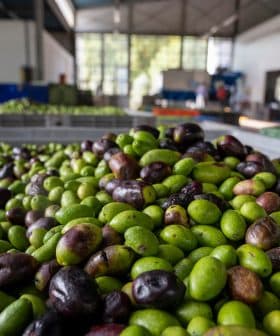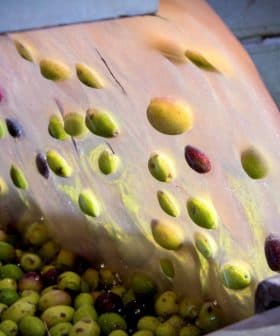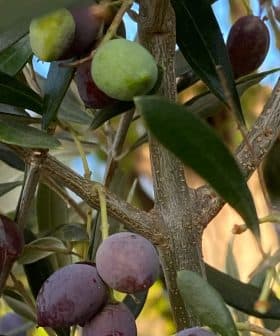Report: Climate, Environmental Degradation Threaten European Food Security
The European Commission analyzed various drivers affecting food security in EU member states, including climate change, biodiversity loss, and socio-political factors. The analysis also highlighted threats such as chemical pesticides, water stress in southern Europe, and the aging farming population, with recommendations for promoting sustainable land management and technological solutions to improve food security in the region. The report emphasized the need for a systemic approach across multiple sectors to ensure food security, particularly for low-income households, in the face of climate change and other challenges.
The European Commission has published an analysis by various commission services on the main drivers affecting food security in European Union member states.
Food security is defined as “when all people, at all times, have physical and economic access to sufficient, safe and nutritious food that meets their dietary needs and food preferences for an active and healthy life.”
The analysis identified the effects of different factors on food security, including climate change, biodiversity loss and the degradation of the environment, the food supply chain and political and socio-cultural factors.
See Also:World Bank Investing Nearly €30B to Improve Global Food Security“Biophysical and environmental drivers leave a major imprint on the land as the E.U.’s major resource for food production, inducing land cover and land-use changes and thus affecting food production systems,” the commission’s analysis report said.
The analysis also found other random factors, such as the Covid-19 pandemic and Russia’s invasion of Ukraine, can significantly disrupt food production and supply across the E.U.
The report pinpointed the heavy use of chemical pesticides as a significant threat to food abundance in the European Union.
“The current high input-intensive agricultural model, based on chemical pesticides, is likely to pose a food security threat in the medium term due to a loss of biodiversity, the likely increase in pests, decline in soil health and loss of pollinators which are essential to agricultural production,” the report said.
The analysis report further estimated that the incurred costs from soil degradation alone in the E.U. total around €15 billion per annum.
Environmental degradation
Environmental degradation refers to the deterioration of the natural environment due to various human activities such as pollution, deforestation, soil erosion, and overexploitation of natural resources. It is a significant environmental problem that affects the planet’s natural balance, leading to adverse impacts on the ecosystem, human health, and the economy. Some of the common forms of environmental degradation include air pollution, water pollution, soil degradation, climate change, and loss of biodiversity. These issues often stem from human activities like industrialization, agricultural practices, and urbanization. The negative effects of environmental degradation can be mitigated through sustainable development practices that promote the conservation of natural resources and minimize the impact of human activities on the environment.
A combination of actions to promote sustainable land and soil management supporting at the same time different land uses, such as housing, agriculture, energy production and tourism, is needed to make the repercussions of intensive agriculture less severe.
The analysis also indicated that southern Europe, particularly the Mediterranean region, suffers from water stress, warming and desertification.
With the climatic models forecasting an increase of 2 ºC to 5 ºC in the coming decades if no mitigation measures are taken, there is a growing risk of multiple emerging threats to the area’s food production.
For example, unnatural weather, pest outbreaks and invasive alien species may ultimately lead to product shortages and higher food prices.
Strategies such as improving soil health and water-retention capacity, switching to less water-demanding crops and applying water-saving irrigation systems might significantly soften the impact of climate change in the region.
Another threat to the E.U.’s food security stems from the aging farming population, with only one in five farm managers under the age of 45 and fewer young people entering the farming business.
According to the commission, measures to alleviate the impact of climate change on the continent’s agricultural industry and reverse the decline in the E.U.’s farming population are in place.
“The commission strives to improve the current level of resilience of E.U. agriculture as much as possible using a variety of approaches and tools,” a European Commission source told Olive Oil Times.
“The E.U. adaptation strategy, the LULUCF Regulation [a group of binding commitments to reduce greenhouse gas emissions in agriculture and forestry] and the new E.U. Common Agricultural Policy (CAP) are instruments that can stimulate adaptation solutions and improve the resilience of the agricultural sector to climate risks,” the source added.
“To bolster the resilience of our farmers, the new CAP aims to ensure a fair income for farmers, to improve the position of farmers in the food chain, to incentivize climate action (including adaptation measures), to support generational renewal and to foster knowledge and innovation,” the source continued.
The report noted that deploying technology in the E.U.’s agricultural sector is also crucial in ensuring high output in food production with a minimal impact on natural resources.
Novel technological solutions could benefit the availability of food supply by increasing productivity, reducing crop losses and enhancing food security.
However, climate change could alter cultivation patterns, mainly in southern Mediterranean countries.
“While it is extremely difficult to correctly estimate the likelihood of shifts in the cultivation of specific crops, it is certain that climate change affects European agriculture and requires agricultural systems and farmers to adapt,” the source said.
The source added that crop productivity is expected to decline in southern European regions and increase in the north. At the same time, more frequent extreme weather events will cause scattered and detrimental impacts all across Europe.
“Temperature increase and the related extension of the growing season make the northward expansion of the cultivation of certain annual and permanent crops possible, thus potentially increasing crop yield,” the commission said.
“On the other hand, it can make the cultivation of certain crops in other regions more difficult or result in a significant yield reduction due to heat stress,” it added.
“Recent research has shown that the occurrence of climate-related extreme events (such as heat stress, drought, intense rainfall) in the E.U. will likely increase progressively with a noticeably greater impact foreseen in south-western regions of the E.U.,” the commission continued.
For several months last year, Spain and Portugal, located on Europe’s southwestern tip, faced prolonged dry weather that seriously disrupted crop production, including the olive oil yield, in both Iberian countries.
Meanwhile, last December, the commission launched the Food Supply and Security Dashboard to provide information about indicators affecting food security in the E.U., such as drought events, increasing freight and energy costs and animal disease outbreaks. The system will also display data on existing stocks of essential agricultural commodities.
The commission’s analysis of E.U. food security concluded that food availability is not at stake in Europe today.
However, food affordability is steadily becoming a concern for households due to inflation pushing prices higher. Furthermore, most member states implement short-term subsidy programs to support households in need instead of more general and future-proof programs.
“By definition, food security has a short-term dimension: people must have access to food every day, not only tomorrow,” the report said. “This requires policies that enable food security in all its four dimensions to be guaranteed in the short run.”
Generally, a ‘systemic approach’ is needed to solidify food security in the E.U. This approach should include actions in many different sectors, including agriculture and fishery, climate, environment and energy, research and innovation, trade, health and social.
Additionally, low-income households should receive special attention to ensure their access to everyday healthy and nutritious food.
“The analysis underlines that there is an inherent urgency to act,” the report said. “In an uncertain and volatile context, the transition to a sustainable food system should continue to guide the E.U.’s political, policy and program action.”










